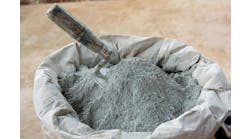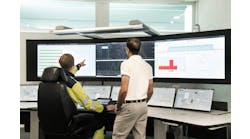TULSA, Ok. Print copies of the Petroleum Equipment Institutes Recommended Practices for Overfill Prevention for Shop-Fabricated Aboveground Tanks (PEI/RP600-07) are now available. This latest Recommended Practices document was produced by the Petroleum Equipment Institutes (PEI) Aboveground Tank Overfill Prevention Committee and is intended to provide a comprehensive reference that consolidates published and unpublished information from equipment manufacturers, installers, tank owners and regulators concerning proper procedures and equipment to minimize aboveground tank overfill incidents. Printed copies of this 34-page document can be purchased on PEIs Web site at www.pei.org/rp600 or by contacting PEI by phone. Single copies are $40 for PEI members and $95 for non-members.
The recommended practices described in the document are limited to the installation, operation, inspection, maintenance and testing of overfill-prevention equipment used on shop-fabricated, stationary and atmospheric aboveground tanks intended for the storage or supply of liquid petroleum products and alternative fuels. These recommended practices may be applied to tanks used for bulk storage, motor-fuels dispensing, emergency-generator systems, residential and commercial heating-oil supply systems or used-oil storage systems. The information contained in the Recommended Practices for Overfill Prevention for Shop-Fabricated Aboveground Tanks document has been assembled from several sources provided by equipment manufacturers, installers and end users.
The transfer of large quantities of fuel into aboveground storage tanks usually involves a variety of pumps, pipes, valves and controls. The configuration of this equipment is very often unique to each storage-tank facility. Typically, the only person on site to manage the fuel transfer operation is the tank-vehicle driver. The lack of industry standards for fuel-transfer procedures and equipment and the reliance on a minimum number of personnel to execute the fuel transfer pose significant challenges to reducing the occurrence of overfill incidents.
PEI has produced this document as an industry service. The intent of the recommended practices is to prevent loss of life, protect the environment, promote best practices for safely transferring fuel into tanks, prevent tank overfills, prevent damage to property resulting from overfills, and minimize costs from cleanups and remediation. The recommended practices described in the document represent a synthesis of industry procedures, manufacturers recommendations and regulatory standards relating to overfill prevention for shop-fabricated aboveground storage tanks.
The practices are the consensus recommendations of the PEI Aboveground Tank Overfill Prevention Committee. The Committee is made up of representatives from petroleum-marketing, equipment-manufacturing, service and installation contracting companies, as well as regulatory agencies.



